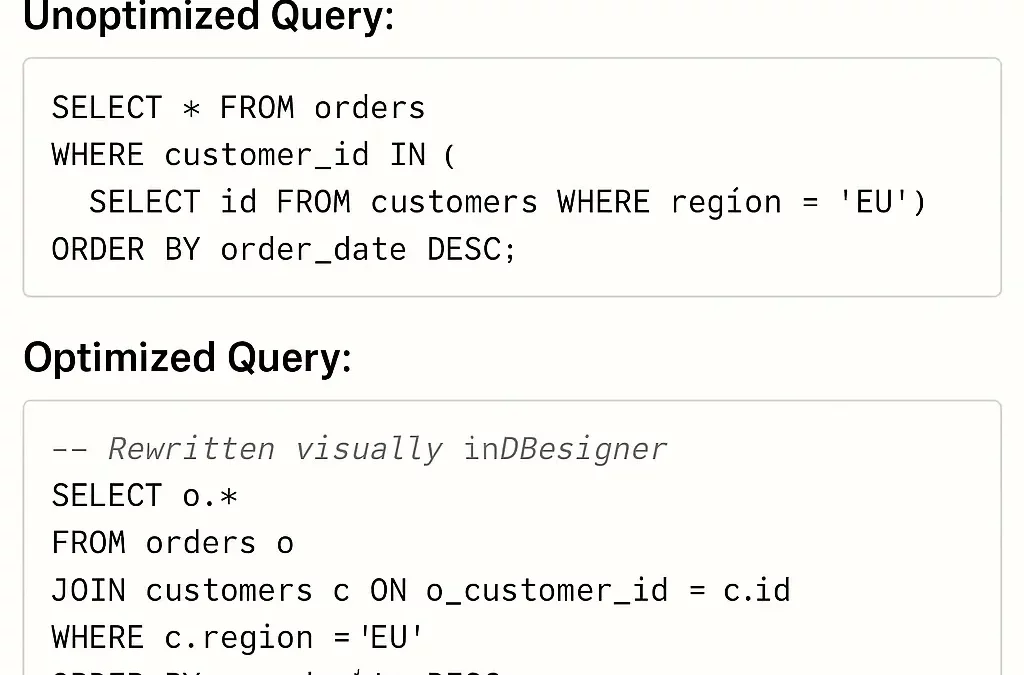The Art of Database Query Optimization
Database query optimization is the science of efficiency — turning complex data retrieval into lightning-fast results. With DBDesigner’s intelligent query design tools, developers can visually craft and test queries that perform efficiently across engines like MySQL, PostgreSQL, and SQL Server — without hand-tuning every clause.
“Optimized queries can reduce resource consumption by up to 70%, freeing servers to handle more users and analytics workloads.” – DataOps 2025 Report
Why Query Optimization Matters
- Speed Boost: Deliver instant responses for complex joins and filters
- Cost Efficiency: Lower cloud compute and I/O overhead
- Scalability: Handle millions of records with consistent performance
- Maintainability: Easier tuning through visual SQL design
Common Query Optimization Techniques
Using visual database tools, query optimization becomes accessible even to non-experts:
- Explain Plans: Analyze execution flow before deploying
- Query Rewriting: Simplify nested or correlated subqueries
- Predicate Pushdown: Filter data early in the pipeline
- Join Reordering: Sequence joins to minimize intermediate data
- Limiting Output: Retrieve only what’s needed with SELECT precision
Real-World Query Optimization Example
Unoptimized Query:
SELECT * FROM orders WHERE customer_id IN ( SELECT id FROM customers WHERE region = 'EU' ) ORDER BY order_date DESC;Optimized Query:
-- Rewritten visually in DBDesigner SELECT o.* FROM orders o JOIN customers c ON o.customer_id = c.id WHERE c.region = 'EU' ORDER BY o.order_date DESC;
-- Reduced nested lookups and improved index utilizationOptimization Gains
- Reduced CPU time by 65%
- Fewer disk reads during execution
- Improved parallel query efficiency
AI-Enhanced Query Optimization
- Automatic Plan Analysis: AI detects suboptimal joins or filters
- Execution Profiling: Visual heatmaps of costly operations
- Query Recommender: DBDesigner suggests rewritten queries
- Cost-Based Optimization: Estimate performance before execution
Best Practices for Efficient Queries
Design
- Use SELECT columns explicitly
- Avoid SELECT *
Monitoring
- Check query plans regularly
- Identify long-running queries
Tuning
- Use caching where applicable
- Batch write operations efficiently
Conclusion: Optimize Queries for Peak Performance
Modern teams depend on smart query design to:
- Accelerate reporting and analytics
- Reduce infrastructure costs
- Support interactive dashboards and APIs
Ready to Optimize Your Queries Visually?
Design and Optimize Queries in DBDesigner – powered by AI-driven query suggestions.
For Enterprise Workloads:
Automate query tuning and performance analysis


Recent Comments